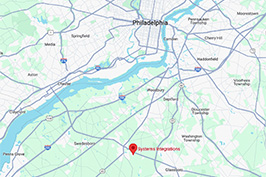Are Your Card Access Credentials Secure? Understanding the Risks of 125kHz and the Security of 13.56MHz Cards
In the world of access control systems, security is paramount. As technology advances, so do the methods of protecting assets, information, and personnel. One critical aspect of these systems is the type of card access credentials used. Two common frequencies dominate the market: 125kHz and 13.56MHz. But how do they differ, and more importantly, how do they stand up to security scrutiny?
The Vulnerability of 125kHz Cards
125kHz cards, also known as low-frequency cards, have been a staple in access control systems for decades. They are cost-effective and widely compatible, making them a popular choice for many organizations. However, their security capabilities leave much to be desired. The main issue with 125kHz cards is that they employ relatively simple communication between the card and reader, without sophisticated encryption or authentication mechanisms. This simplicity makes them highly susceptible to cloning and skimming attacks.
Attackers can easily intercept the data transmitted by a 125kHz card, replicate it, and create a functioning copy that grants them unauthorized access. Tools and devices designed to exploit these vulnerabilities are readily available and require minimal technical expertise to use. Furthermore, 125kHz cards typically carry a fixed code that does not change, making them an even easier target for duplication.
Why 13.56MHz Cards Offer Enhanced Security
In contrast, 13.56MHz cards, known as high-frequency cards, incorporate advanced encryption and mutual authentication protocols. This frequency band is utilized by technologies like Near Field Communication (NFC) and High-Frequency ISO standards, such as ISO/IEC 14443 and ISO/IEC 15693. These standards are not just about higher frequencies; they define secure communication protocols that ensure a protected exchange of information between the card and reader.
13.56MHz cards often employ dynamic encryption keys. This means the information exchanged is encrypted and can change with each interaction, making it significantly harder for potential attackers to clone or simulate a card. Additionally, these cards can support more complex data storage and processing capabilities, allowing for the implementation of bi-directional authentication and sophisticated access control policies.
Making the Switch to 13.56MHz: Worth the Investment?
Upgrading from 125kHz to 13.56MHz cards may seem like a daunting task, especially for organizations with extensive legacy systems. However, the security benefits are undeniable. The transition not only enhances physical security but also provides a foundation for integrating additional functionalities such as biometrics, mobile access, and multi-application capabilities on a single card.
The initial investment in higher frequency systems is quickly offset by the reduced risk of security breaches and the potential costs associated with them. In today’s security-conscious environment, ensuring the integrity of access control systems is not just about protecting assets—it’s about safeguarding reputation and ensuring operational continuity.
Conclusion
The choice between 125kHz and 13.56MHz card access credentials is a clear one from a security perspective. While 125kHz cards may continue to serve in less security-sensitive environments, the move towards 13.56MHz technology is a necessary step for organizations looking to protect themselves against sophisticated threats. By adopting higher-frequency cards, businesses can enhance their security posture, embrace new technologies, and future-proof their access control systems.
Security is an ever-evolving field, and staying ahead of potential vulnerabilities is key to maintaining a secure and trusted environment. When it comes to access control, the shift to more secure technologies is not just a recommendation; it’s a necessity.
Let Systems Integrations Secure Your Transition


